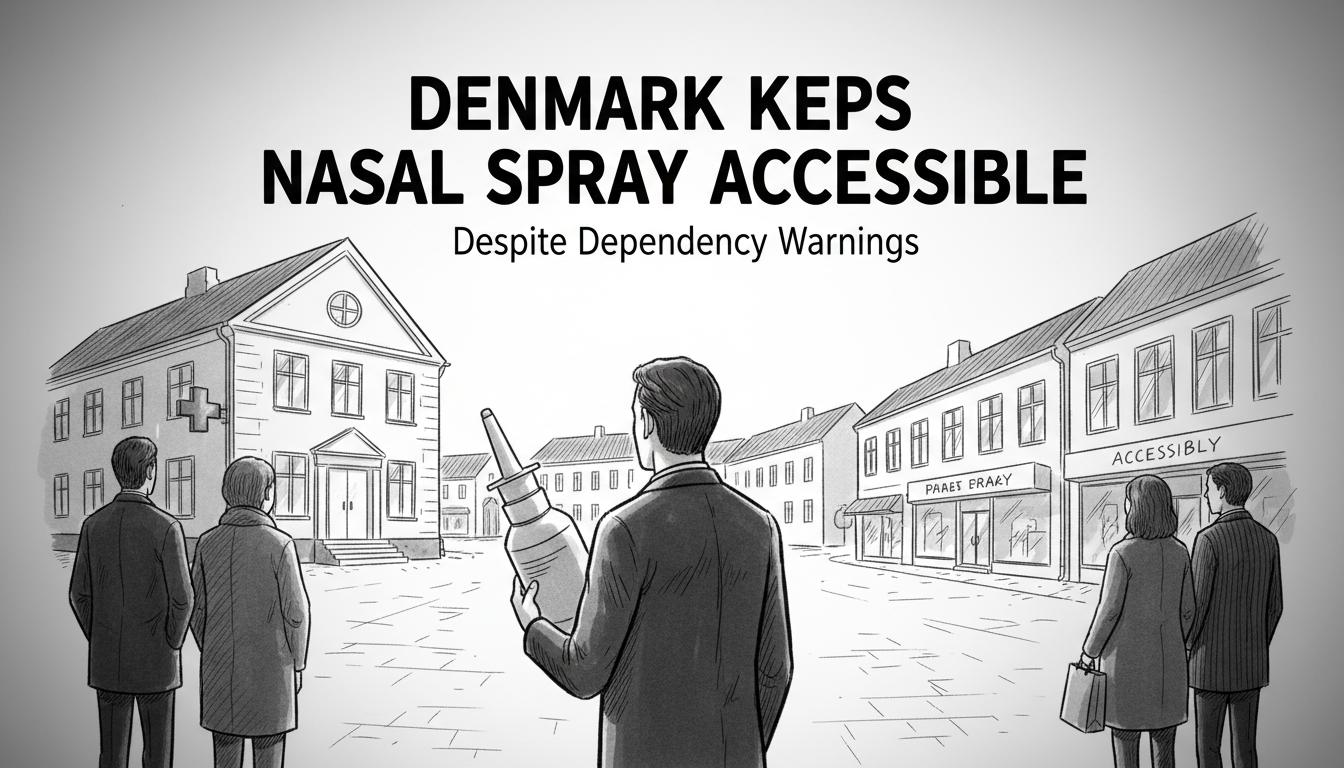Danish health authorities have decided nasal decongestant sprays will remain available in retail stores. This decision comes despite professional medical societies calling for sales restrictions to pharmacies only. The Danish Medicines Agency maintains its position after reviewing evidence about potential misuse.
Medical specialists had raised alarms about overuse and dependency risks. The Danish Rhinologic Society proposed limiting sales to pharmacies where professional guidance is available. They expressed concerns about long-term nasal damage from improper use.
Line Michan, a department head at the Danish Medicines Agency, explained their reasoning. She said very few users experience problems compared to those who benefit from proper use. The agency concluded the public health benefits outweigh the risks for now.
Nasal sprays provide effective relief for common cold symptoms and nasal congestion. Yet extended use carries documented health risks. The nasal membranes can swell with prolonged application. This creates a cycle of dependency known as rhinitis medicamentosa.
These products have been available in Danish supermarkets and gas stations since 2001. Sales data reveals concerning patterns. Approximately 4.4 million bottles were sold recently according to pharmacy association figures. This represents nearly double the sales volume from when retail availability began.
Three out of four nasal spray purchases occur outside pharmacies. This means most buyers miss professional healthcare advice about proper usage. Pharmacy consultants have voiced concerns about potential dependency issues growing silently.
Helle Jacobsgaard, a chief consultant with the pharmacy association, highlighted the knowledge gap. She noted we lack precise data about how many Danes developed permanent nasal spray dependency. The dramatic sales increase suggests a growing problem needing attention.
This regulatory decision reflects Denmark's balanced approach to public health policy. It considers both accessibility and safety concerns. The situation illustrates how Scandinavian countries navigate healthcare accessibility versus professional oversight.
The debate touches on broader questions about self-medication culture. Danes value convenient access to healthcare products. Yet medical professionals emphasize the importance of proper guidance. This tension between convenience and safety appears in many Nordic health policy discussions.
International readers might find Denmark's retail pharmacy system noteworthy. Unlike many countries, certain medications available only by prescription elsewhere are sold freely here. This reflects trust in citizen responsibility alongside strong social safety nets.
What happens next? Medical societies will likely continue advocating for restrictions. The Medicines Agency promises ongoing monitoring of usage patterns and adverse effects. This story demonstrates how Nordic countries constantly reevaluate health policies based on emerging evidence.
Danish integration policies often emphasize preventive healthcare for all residents. Easy access to basic medications supports this approach. Yet this case shows even well-intentioned policies require regular reassessment. The balance between convenience and health protection remains an ongoing conversation.

